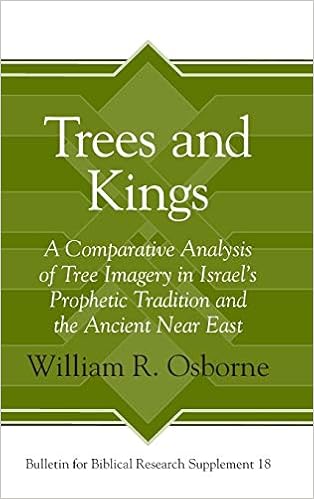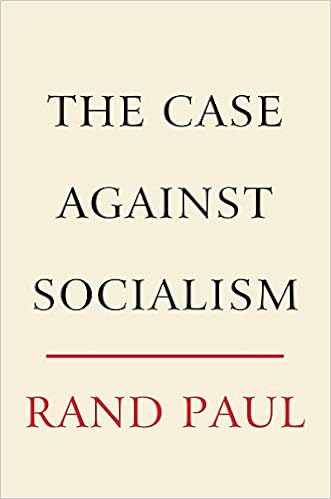George Floyd is a household name. Nearly twelve months ago he died on the streets of Minneapolis uttering the words 'I can't breathe', now indelibly etched in our collective conscientiousness, as a policeman's knee was on his neck.
Shortly after this event, in the wake of the riots around the world, I spoke to a perplexed colleague about this issue. He was endorsing the riots, the outrage, and racism involved in this incident. Feeling quite diffident and mildly rebarbative I challenged many of his key assumptions, particularly in regards to what he wanted done. Derek Chavin, the policeman being held ultimately responsible, had been sacked, arrested and incarcerated - politicians and the public alike had decried what had happened.
'What more do you want?' I declared.
His answer was that fairness, equality and equity needed enforcement - and socialism - because it is the ideology of what is fair, equal and equitable - must be impelled.
Anti-racism is, in essence, Socialism. Just read Kendi's book; racism is not colour related as black or coloured people can adopt 'whiteness'. Kendi specifically says that feminism, inequality in all forms: environmental, reproductive, gender, sexuality, economic, religious, colonial, and those that are differently-abled, are the very definition of racism and to reject these - in all of it's guises - is being an anti-racist. Ostensibly, to be an anti-racist, one needs to reject whiteness in all of its social, intellectual and moral manifestations and implications. To tear down society because it is white, and build the Socialist utopia.
Socialism is becoming popular again; and I have my views pretty well sorted out on this subject. Then why read Rand Paul?
Rand Paul is a libertarian - I am not. Neither of us likes Socialism and I am wondering if we reason the same way about this. Some conservative pundits are fond of saying that '...I am Libertarian about this...', therefore, I am intrigued to see if there are inherently conservative arguments against socialism and libertarian arguments that are distinct. So - this explains why I am here.
To explain why I decry libertarianism and laissez-faire capitalism will take us too far afield, but I reject the Objectivism of Ayn Rand and the greed, narcissism and misanthropy germane to her views.
When I first picked up this book I was expecting an analysis of the issue - I expected to sketch some history of Marx & Engels, economic disputes and the Bolshevik Revolution. To my surprise he started in Caracas with Nicolas Maduro. This didn't bode well, as while a case can be made from the litany of failed Socialist states, and the invariably descent into collectivism and authoritarianism, I am unsure this is the best way - I think that I may be wrong as the reading became more interesting as the modern expressions of Socialist ideology unfold. Of particular interest was the preparation for the Chavez/Maduro iteration of Socialist dominance. It was not the 'Castro-loving Hugo Chavez' that transformed Venezuela - rather a long march to the scaffold starting in the late 1950's with Romulo Betancourt through to Carlos Andres Perez. When Chavez came on the scene in 1992 in the failed coup, imprisoned, then elected president in 1998, Venezuela's Socialism was ratcheted up significantly - to the rancorous applause of the American left, Bernie Sanders and Noam Chomsky et al.
Paul rather pugnaciously entitles this section 'Because eating your pets is overrated - Socialism creates poverty'. Cantankerous as Paul is - he is not wrong.
So, Paul starts his indictment of Socialism with the idea that there is no Socialist Utopia in existence - nor has their every been. Paul has convinced me that this is the place to start - not a refutation of Marxism. Show me a successful Socialist state - they all indubitably end up in poverty, plutocracy and violence. The answer to this charge was always that this was never real Socialism - however, that is not the rejoinder anymore; rather it is the index finger pointing, with alacrity, towards Scandinavia. It is to this issue that Paul turns next.
Then the trump card is played by the Democratic Socialist - it is the Scandinavian countries that are the Socialist success stories! That is what we want! Denmark, Sweden, Finland and Norway. They are the socialist successes.
Paul demolishes this nonsense, quoting the Scandinavians themselves - demonstrating that they have a Free Market economy and quoting Scandinavian officials denying the charge. Simply put, Scandinavian success is build on Capitalist success
"If government ownership of the means of production is the sine qua non of socialism, the facts argue quite convincingly that the Scandinavian economies simply are not socialist." p. 80
Then, Paul focuses on the issue of income inequality, the issue of the modern socialists like Bernie Sanders and Alexandra Ocasio-Cortez. Quoting Dalibor Rohec, Paul begins his common sense attack on this pivotal issue:
"If one cares about the welfare of the poorest and most vulnerable Measures of inequality tell us nothing about the living conditions of the poor, their health and their access to economic opportunity." p.53
This is, of course, true because economic inequality may be very small - and everyone be poor. Pakistan, Ethiopia or Venezuela all have better income inequality rates than the US - or here, for that matter - but that is because they are all equally poor. These are well worn arguments - to which there is little comeback from today's elite. Nothing more than invidious moralising and Ad hominem.
Paul is scandalised, and rightly so, by this inane answer. He deftly cites the Socialist experiment of Pol Pot's Khmer Rouge in Cambodia. Paul leads us through a history lesson of Pol Pot's education in France and his obsession with Marx & Engel's famous manifesto. He notes how the Cambodian revolution under Pot was the most pure example of Socialist ideology.
"He [Pot] achieved, more than his predecessors, the true goal of abolishing all private property and he didn't seem to mind if it took more than a few broken skulls." p.197
Paul moves from this to an analysis of Hitler's socialist underpinnings - starting with the name of the party and then demonstrating the policies of the regime. Following this is some trenchant inquiry into Maoism, Stalinism and the Khmer rouge. More devastating links to the inevitable authoritarianism that follows socialism.
He looks at the 'Green New Deal' of the American left and ends opining on the virtues of Capitalism and that 'free markets make free people'. My hope is with him in that I desire people choose liberty too. It is a very libertarian ending - but it has great moral force.
Wedged between these last two sections is the most fascinating bit of the book - and the part in which I am still thinking through. Part IV is entitled 'Where are these angels? The philosophy of Socialism. I needed to read carefully here - and indeed this section is the part of the book that is harder to follow - one needs some familiarity with the philosophical ideas to follow the thought process. Also, not being a Libertarian, particularly an Ayn Rand Objectivist, I needed to weigh my thoughts carefully.
Paul argues from Plato's brand of state governance, past Thomas More's Utopia through to Hegelian dialectic that is so intertwined in Utopianism of all stripes. Here is a scathing denouncement of Historical determinism. It is hard to disagree with Paul here - it is an interesting take. Using Karl Popper to undermine the case of determinism and the connection to utopianism, Paul makes his case stronger. However, he then mounts are argument that is close to my heart - we'll call it the argument from Dostoyevsky; for want of a better term. Using the masterful Notes from Underground, Paul launches an attack on the magisterial use of reason to justify Utopianism.
Paul is correct that utopianism is the point of the philosophical conflict behind these different political visions, and in a unexpected twist, he unravels Fukuyama - and other Neoconservatives for sharing the Hegelian historical determinism in defense of a Liberal democracy. He ends with these sage words:
"From my perspective, the cautionary moral of a utopia is: don't succumb to any end-of-history utopias from the right or the left. Don't accept any preordained linearity to history." p. 243
There is no doubt that this philosophical section is the apogee of the book. However, the denouement should be stated again. Namely that 'Freedom should bring us together.
I remain decidedly not a libertarian, I do not agree with Paul on any number of his policies that reflect this libertarian bent. However, I am in lock-step with this withering critique of the detritus of socialism. It is true - Freedom should bring us together. And perhaps that is the angle that one should take in the light of these repressive Covid19 lockdowns. The constant intoning of the safety of the Collective, can only be undone with a rallying cry of Freedom.
Addendum:
This is politics and 'Politics ruins everything'. As a Christian, freedom is most certainly the answer. Moreover, Freedom - rightly understood - is freedom in Christ. I have no doubt that terrible times are coming and they are known by God. His providence is at work nonetheless - and freedom in Him ensures that we need not fear the trouble that is to come. Politics will never bring peace. Peace comes in the sky with the Prince of Peace. This is NOT historical determinism - rather, this is the plan of an omniscient God.
1598 Words
4 1/2 Stars

